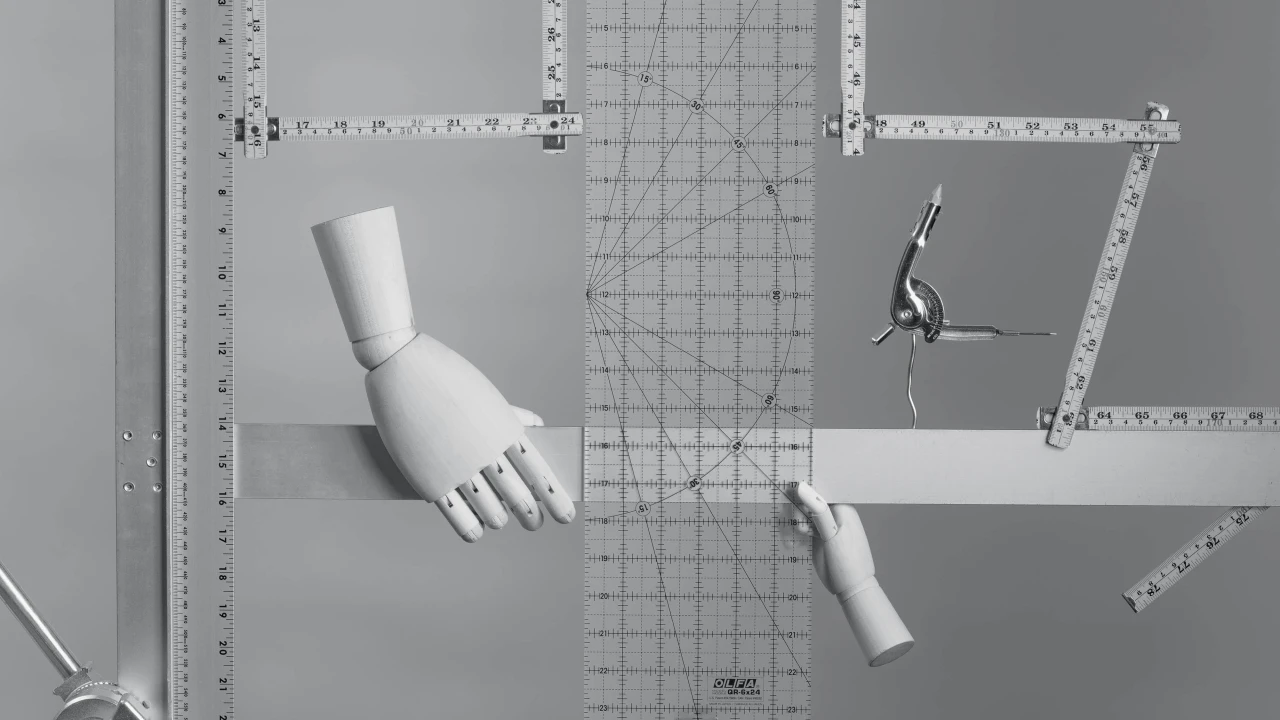someone stole my muffin, company stopped letting us know when people leave, and more
It’s five answers to five questions. Here we go… 1. Someone stole my muffin from the office freezer I work in a small office and been here for nearly three years. We have less than 15 people at full staff in office and some are from other locations/departments. We have a shared common area with […] The post someone stole my muffin, company stopped letting us know when people leave, and more appeared first on Ask a Manager.

It’s five answers to five questions. Here we go…
1. Someone stole my muffin from the office freezer
I work in a small office and been here for nearly three years. We have less than 15 people at full staff in office and some are from other locations/departments. We have a shared common area with a basic fridge/freezer and until I came, not many people used it for longer term storage. I’ll bring in pre-packaged leftovers frozen from home, then eat these on my lunch breaks. I usually have at least a quarter of the freezer filled with my frozen soups.
I trust the freezer more than the fridge. I’ve had a leftover salad in the fridge, and my supervisor threw it out because it didn’t meet their standards to eat. While wilted, I had planned to eat it that day. And when I went to look for it, without an easy alternative for lunch, I ended up coming to an agreement with my supervisor: unless it’s moldy, do not throw it out unless you brought it.
About six months ago, a phone charger from my supervisor’s desk went missing. After searching high and low, they ended up asking the nightly cleaners, mentioning they can request camera footage. The next day it was returned with a note saying it was an accident. Since then, I’ve started locking my locker (never felt the need to before) and due to this prior occurrence, I’m not sure I should give them the benefit of the doubt.
I bought some muffins and throwing the package in the freezer. I’ll take one out from time to time to have on break, but they’ve lasted in the freezer for more than a month. Yesterday, I went on my break and wanted a muffin, but it wasn’t there. I searched the freezer and then asked every single one of my coworkers, even if they had noticed it or saw a need for it to be thrown out. No one knew anything about it, and a couple coworkers confirmed it was there last Friday (two work days prior). I brought it up to my supervisor (who mentioned it wasn’t them as they no longer throw anything out) and they are refusing to go to the cleaners over such a small item.
I’m not sure what I should do. Do I drop it and just accept that my personal items are not safe at work? Or push the request to look into this further? It’s less about the food item, and more about respect for other’s property. But since I know I tend to overanalyze things, I was looking for a third party professional perspective.
It’s only happened to you one time so for now I’d drop it. If food starts going missing regularly, that’s worth bringing up again — but right now it’s a one-time, fairly minor incident.
For what it’s worth, I wouldn’t assume that all your coworkers denying taking the muffins points toward the cleaners. While some people do shamefacedly fess up when questioned about taking someone else’s food, others will blithely deny it.
But also … taking up at least a quarter of the freezer is a lot for one person to be using. You might figure it’s fine because no one else is using that space, and that could absolutely be true — but if more does go missing, it might make sense to try keeping less there and see if that makes any difference. It’s possible that if someone sees a bunch of food item X packed in there, they’ll think you’ll be less likely to miss one (not that it isn’t still stealing; it is), and it’s also possible that if you do need to escalate it, storing less there will be one of the things someone suggests.
Related:
how can I stop people from stealing my food in the office fridge?
2. Company stopped letting staff know when people leave
I work at a global nonprofit that employs only around ~150 people. Since we’re globally distributed and all work remotely, there are a handful of people you don’t work with on a regular basis, but for the most part, you are at least familiar with most people’s names and roles by hearing about their work, talking with them on various Slack channels, etc.
A while ago, our HR stopped sending emails when people left the organization (either by their own choice or not). Part of the excuse they gave at the time was that they were only notifying people who “directly worked with” the people who left. Before this decision, there was a patch of time when we were getting emails every Friday from HR telling us about departures, and it started stressing people out. While I can understand how multiple departures can be unnerving, it’s also unnerving to reach out to a coworker and find out that their email/Slack has been deactivated. What’s also frustrating is that the parameters of “directly working with people” aren’t quite clear for people in roles like IT, finance, etc., who technically work with everyone.
We brought this up with HR in a managers meeting, saying that this was causing even more strife for staff, but the response was “it’s complicated” and “there’s no one clear solution,” which I don’t really buy. We even suggested at least notifying team leads, who could then let their teams know, but this was brushed off.
Am I wrong to think that it’s not as complicated as they’re making it seem? Why not just tell people? I can’t imagine this secrecy is any better for morale than informing people of departures.
You’re not wrong, and they almost certainly stopped sending those emails because the frequency was unsettling people. Rather than look at whether their level of turnover was a problem and figure out what to do if so, they’re going for “just make it less visible.” (It’s also possible that the turnover isn’t even a problem, just a bunch of unconnected incidents happening at once, and they might even welcome some of those departures. But in that case, they need to figure out better messaging about what’s going on, not just try to hide it.) Secrecy like this tends to demoralize people, breed cynicism, and lower trust.
3. Job searching while being stalked and harassed
Since early 2024, a stalker has harassed me and made it nearly impossible to get a new job. We are talking about false accusations of serious crimes, doctored photos of porn, reporting me to my then-employer to try to get me fired, active court cases, and more. While I am unable to get more into the legality of the situation, between my unfortunately unique name and law enforcement recommendation to basically disappear from the internet, I’m unable to rely on the tried and true networking methods of LinkedIn, in-person meetings, and giving general updates where I’m living these days.
It’s a nightmare situation.
What’s worse is that due to company policy, as a contractor, I was limited to two years before either being let go for six months or being converted to full-time employment. My department, despite my managerial line going to bat for me to get hired, was not granted the headcount and I was let go. There is no room on the team to return as a contractor and while I receive many referrals to try and get back into the company, so far it’s been a no-go. My colleagues are aware about the situation I’m in and utterly sympathize.
My unemployment is due to run out soon, and I’m utterly frustrated by the situation at hand. I move along the interview process only to get halted at the background check and have to explain the abuse and legal situation. While I strongly believe that victims of abuse should talk about their experiences in order to minimize the intended embarrassment and shame their abusers try to put on them, this is not one of the first things I want to tell my future employers.
What can I do? Like I mentioned before, there are legal processes moving that will hopefully bring me safety and justice but it’s slow going and money is an issue now. While I have no qualms about swallowing my pride and going back to retail, even that is presenting an issue with the background checks. I have no energy to build a business, no connections to leverage safely, and am utterly heartbroken.
I’m so sorry, this is awful. You shouldn’t have to do something this extreme and there would be obviously be downsides to it, but would it make sense to consider a name change? You might still need to explain the situation to employers at some point, depending on the type of background check they do, but it would give you some measure of control over when you have to bring it up (and would move it later in the process). Otherwise, I might try bringing the situation up proactively; when you’re nearing the point where a background check is likely to happen, explain what’s going on, what they’re likely to find, and that it’s a campaign of harassment by a stalker. I’d also try to get a letter from a lawyer and/or law enforcement verifying what you’re saying to offer up at that point. If you take the initiative to explain the situation rather than waiting until they come across it, it might prime people to be sympathetic and want to help (as they should).
4. What’s the deal with these emails after I made my resume public?
I’m a new job seeker who made the mistake of letting my resume be publicly discoverable for a time. Then I received multiple messages from a business telling me they liked my application, and to contact them to set up an interview time. They had my name and contact information, so clearly they had seen my resume. One problem: I had no idea who they were and had never even applied! Upon searching, the only thing I turned up was a small sales business with a generic name, so I assumed it was a scam and moved on. (I did get a follow-up text for not contacting them though.)
Then I got a different, much more official-looking email (after a missed call), for a different sales agency, this one with a legitimate website and LinkedIn. Again, it started with, “Thank you for your application” even though I had never applied and had no idea who they were. So now I’m a bit confused. Is this a convoluted scam? Is it normal for businesses who look at public resumes to treat it like an application? Is it a generic email that no one bothered to alter, and they’re just spamming as many people as possible? What’s going on here?
It could be a scam (a lot of cold calls about jobs are, and especially if they’re persistent like that first one was), but at least the second one could could be a legitimate response to you having your resume posted publicly. “Thank you for your application” could be the wording of the canned email they send when initially moving a candidate forward, even though you didn’t actually apply; it would be sloppy if so, but not necessarily a conclusive sign of a scam. But proceed with caution until you know more — and if you see other signs that make you doubt their legitimacy, write them off. (And if they want to send you a check for “equipment” or otherwise pay you before you’ve done any real work, it’s 100% a scam.)
5. Applying for jobs in another state
I made a leap last year and moved from my home state New York to D.C. for a fed job that was a pay cut, but for a cause I believed in, only for the job and the agency itself to be teetering with instability and very likely layoffs by September.
I want to move back to my home state, and have been applying to jobs there — but I want to move to a different part of the state, three hours from where most of my previous experience was. I have a set move-back in October, but am willing to move earlier for any roles.
I’m not exactly applying for high-level jobs — more like middle management in state government jobs, higher ed, nonprofits, community programming, libraries. My work history is a brick-a-brack of middle management in different industries, and while I know I’m more than qualified for the jobs I apply to, I’m worried my combination of being “non-local” and having a varied work history is why I’m not getting responses — these aren’t positions I’d imagine they expect a non-local to apply to.
How do I make it clear my complete intentions to move back to my home state, and that I’m willing to drop everything and make the drive for interviews, since I already split my time between the two states? Do I use a friend’s address to apply (where I will most likely be crashing)? Do I say “[My current city, state] relocating to [intended metro area by October, or earlier]” on my resume/cover letter? Do I open my cover letter with my relocation, or end it with that?
If you’re able to get there quickly for interviews, you could use the friend’s address (and then if it comes up and is questioned, you’d explain that’s the address you’ll be at once you move). If you do that, you don’t need to address it in your cover letter at all. The other option is to put “relocating to MetroArea” on your resume alongside your contact info. (You don’t need to include an address on your resume at all these days, but if your current job is clearly in D.C., it makes sense to explain it in some way.)
You could reiterate that in your cover letter too (including “and available to move sooner if needed”). I’d probably put it at the start of the letter just so it’s not missed. Don’t spend a huge amount of time on it — just a single sentence explaining you’re returning to your home state of X (so it’s clear why you’re moving and that you have ties to the area). More here:
how can I find a job in another state without moving there first?
The post someone stole my muffin, company stopped letting us know when people leave, and more appeared first on Ask a Manager.








































































![https //g.co/recover for help [1-866-719-1006]](https://newsquo.com/uploads/images/202506/image_430x256_684949454da3e.jpg)


























![[PATREON EXCLUSIVE] The Power of No: How to Say It, Mean It, and Lead with It](https://tpgblog.com/wp-content/uploads/2025/06/just-say-no.jpg?#)


















































